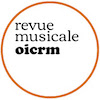-
Vol. 9 nº 2, décembre 2022
Ce texte a pour objectif d’analyser les sources de l’APM et d’indiquer quelques stratégies adoptables par l’enseignant de musique afin d’aider l’élève à mieux gérer ses émotions lors d’une représentation publique. La revue de littérature sur l’APM proposée inclut des études 1) dans lesquelles les participants étaient des musiciens ou des enseignants de musique, 2) dont l’anxiété de performance était la thématique principale et 3) comportant une réflexion sur le rôle des enseignants de musique sur cette question.
-
Vol. 8 nº 1, juin 2021
Performance anxiety is a serious concern for many musicians, causing behavioural, physiological, and psychological distress, and often impairing performance quality (Kenny 2011). In recent years, the experience of school age musicians has been considered, with findings indicating that performance anxiety is present in many people from an early age—potentially from the earliest performances. Questions have been raised as to the innate or developed nature of performance anxiety, with preliminary findings suggesting that both may be relevant (Boucher and Ryan 2011). This study sought to investigate the experience of music performance anxiety in young pianists’ lessons and performances.
Results indicate that self-esteem and practice are significant predictors of MPA, with self-esteem having the most notable effect. Almost half of the participants reported feeling nervous in their lessons at least some of the time. Most students noted that their teachers encourage them to perform; however, less than half reported that their teachers address performance preparation issues, or discuss memorization strategies or performance anxiety with them. Less than a third of the participants reported that their teacher holds classes that simulated performance situations, such as a studio dress rehearsal.
ISSN : 2368-7061
© 2025 OICRM / Tous droits réservés
